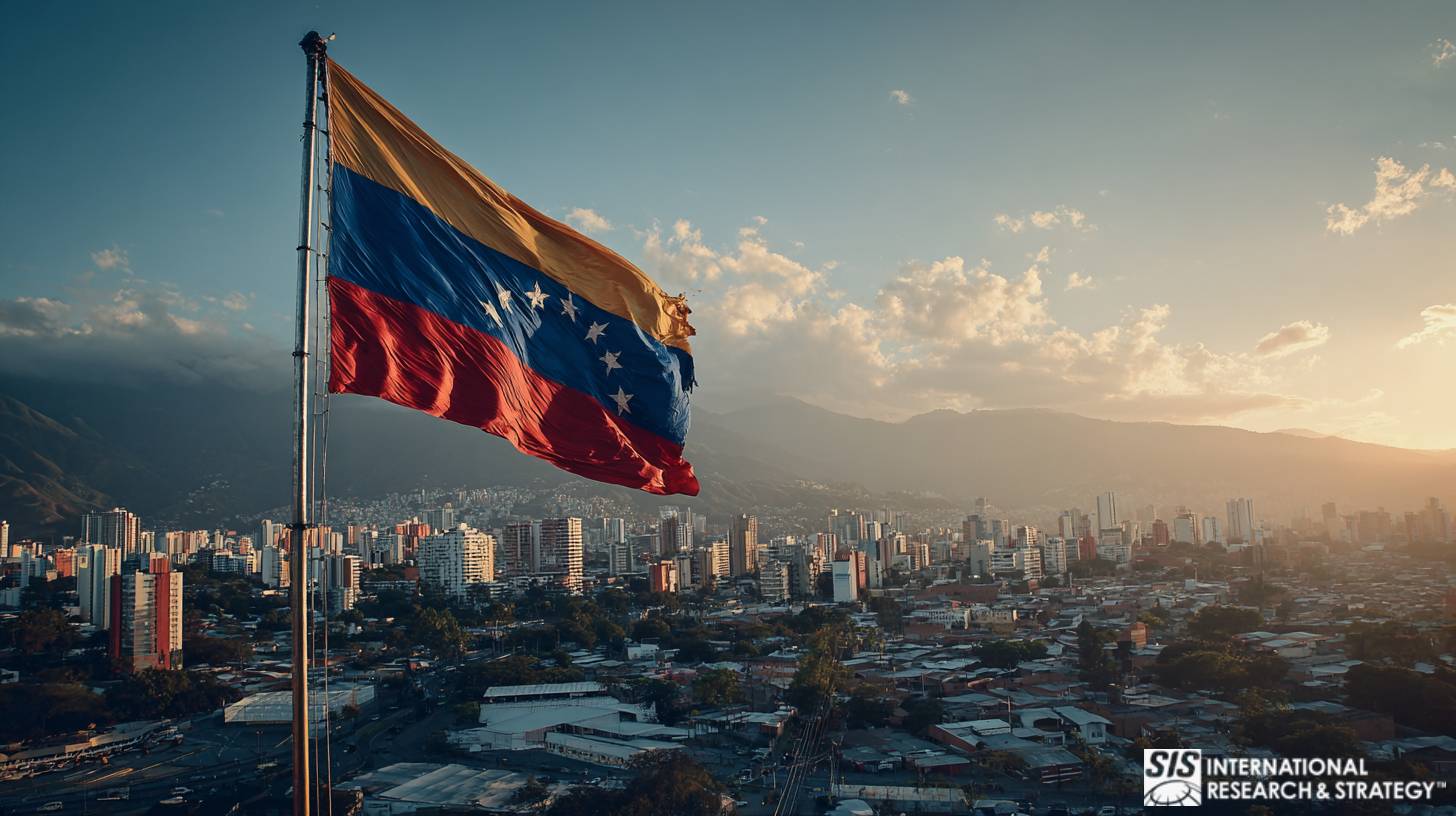أبحاث السوق في فنزويلا
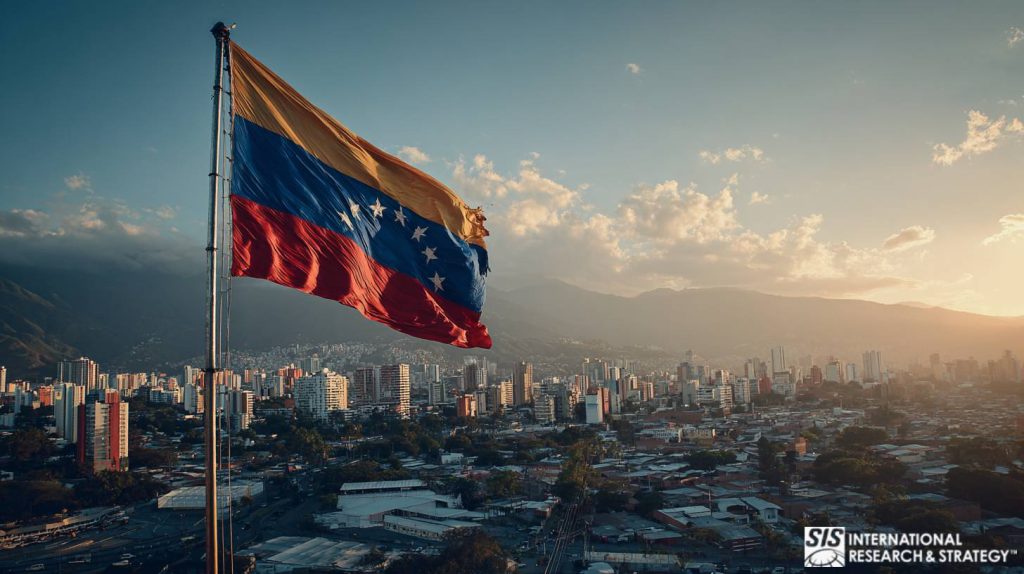
في أعقاب تشافيز
Since the death of charismatic United Socialist Party leader Hugo Chavez in 2013, Venezuela has struggled during the presidential tenure of his hand-picked successor, Nicolás Maduro. With a one-product economy based almost entirely on oil production, the financial fortunes and the quality of life for many in Venezuela have plummeted in direct relationship to world oil prices. Already in decline during Chavez’s waning years in office, under Maduro the decline has devolved into an outright collapse.
واليوم، الحكومة غير قادرة على استيراد أو توفير حتى المنتجات الأساسية. ويتجمع الناس لساعات طويلة في طوابير طويلة، في انتظار الحصول على الأدوات المنزلية والأدوية والمواد الغذائية. ومع استمرار تدهور الأوضاع، أصبحت حوادث الاحتجاج والنهب والعنف أكثر شيوعاً. ويلقي مادورو باللوم في هذا النقص على التخزين والتهريب، لكن سوء إدارة الحكومة يرى الكثيرون أنه السبب. كما أن الصناعات الوطنية تتضرر أيضاً، وقد وصل مستوى إنتاجها إلى الحضيض. وفي الوقت نفسه، فإن التصنيف الائتماني لفنزويلا يقع في المنطقة غير المرغوب فيها.
Price controls are in effect to protect consumers from runaway inflation and currency has been shockingly devalued. Exports are shutting down, and companies continue to leave the country or close down. Inflation has risen into triple-digit territory – the highest in the world – and salaries are far from keeping pace. Crime is on the upswing in Caracas and to a greater degree in the interior of the country.
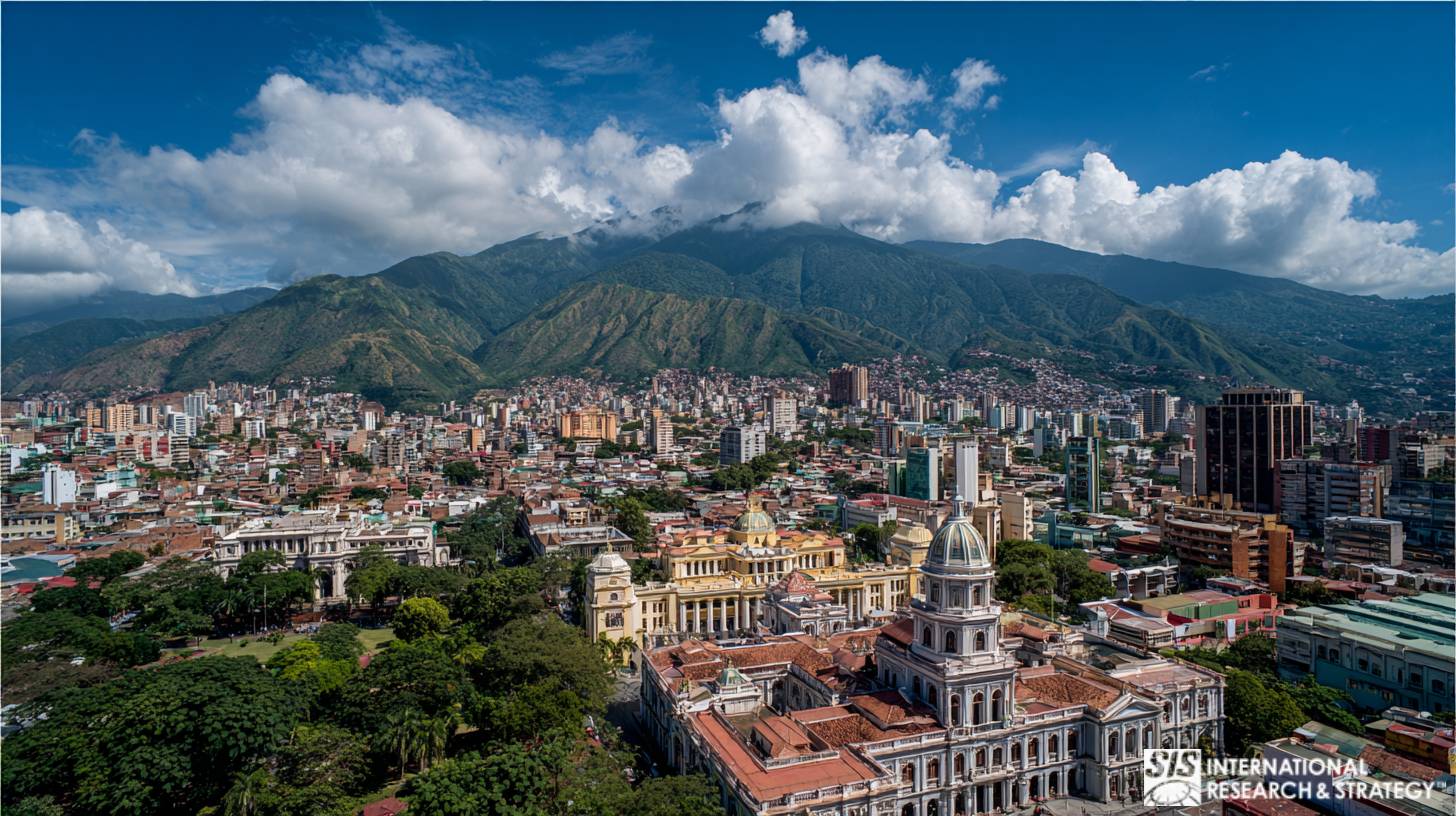
من الصعب أن نتخيل أنه قبل عقد من الزمان فقط، شهدت فنزويلا واحدة من أكبر طفرات السلع الأساسية في التاريخ الحديث، حيث قُدر إجمالي أرباحها من النفط بحوالي نصف تريليون دولار، على قدم المساواة مع الكويت. ولكن في أعقاب ذلك، أدى سوء الإدارة الاقتصادية وانخفاض أسعار النفط العالمية إلى ترك البلاد في حالة من الفوضى مع أمل ضئيل في أي انفراج فوري. فالاضطرابات الاجتماعية منتشرة، وينتشر الشعور السائد بأن فنزويلا قد وصلت إلى نقطة الانهيار. وقد تمكنت الحكومة حتى الآن من عزل نفسها عن الاضطرابات، لكن التغيير ربما يكون قادماً. هل يصبح مادورو آخر زعماء تشافيز؟ الوقت سيخبرنا. وفي الوقت نفسه، فإنه يتخذ لهجة أكثر استبدادية وتشددا.
"وخوفاً من تصاعد الاضطرابات العامة إلى شيء أكثر خطورة، قامت الحكومة الآن بنشر قوات للسيطرة على طوابير المتسوقين الساخطين في المتاجر شبه الفارغة في البلاد. كما أدخلت نظاماً للتقنين، بحيث يقتصر المتسوقون على يومين في الأسبوع في المتاجر التي تسيطر عليها الحكومة. مثل بلومبرج cynically put it, “Venezuela reduces lines by trimming shoppers, not shortages.”.1
في الأساس، يُنظر إلى الكارثة الفنزويلية المتكشفة على أنها حالة نموذجية حول كيفية القيام بذلك لا لإدارة الاقتصاد في عصر الرأسمالية العالمية. إنه نموذج اقتصادي فاشل بلا أدنى شك. في الوقت الحاضر، تبلغ قيمة الدولار في السوق السوداء مائة مرة أكثر مما هو عليه في البورصة. ويُنظر إلى أنه من الممكن تماماً أن تضطر فنزويلا في مرحلة ما إلى التخلف عن السداد. ومع وصول النفط إلى أقل من $50 للبرميل، فإن البلاد تخسر المال باستمرار. تشير التقديرات إلى أنهم يخسرون $2B من الاحتياطيات كل شهر.
هل يحل ارتفاع أسعار النفط مشاكل فنزويلا؟
World oil prices historically fluctuate. While they are presently at rock bottom, most industry prognosticators feel that prices will inevitably rise once again. Unfortunately for big oil-producing nations such as Venezuela, just when this might occur is uncertain. Certainly, a normalizing of oil prices would help to keep Venezuela solvent and operative. At $70-$80-a-barrel, it could sustain itself and feed its people. Concurrently, if the people do better, the Chavista government stands a far better chance of enduring.
كما أفادت مؤخرا صوت أمريكافنزويلا من بين أعضاء منظمة البلدان المصدرة للبترول الأكثر تضرراً من انخفاض أسعار النفط. وقد فشلت حاجتها إلى خفض أوبك للإمدادات لدعم الأسعار في تغيير موقف السعودية وحلفائها الخليجيين في أوبك، الذين يركزون على حماية حصتهم في السوق.2 وبدون ضمانات من المملكة العربية السعودية وأوبك وروسيا وغيرها من الدول الغنية بالنفط للحد من الإنتاج، فإن التوقعات المالية المباشرة لفنزويلا قاتمة.
Of course, other problems existed before the bottom fell out of the oil market. Even if and when oil prices rise, Venezuela will have to deal with its broken system, price controls, gas subsidies, rationing, and inadequate food supplies. Paying off creditors won’t help a hungry populace. An influx of cash also won’t restore political freedoms. Chávez and Maduro dealt with a lot of problems by throwing money at them. With the money gone, that’s no longer possible. At best, a new infusion of oil money might help them to kick the can down the road a bit further, but it’s no magic bullet.
فنزويلا: ديمقراطية أم لا؟
Despite all of the accusations leveled against it, the Chavista government of Venezuela built its legitimacy on fair electoral processes and relatively clean elections. Today, however, the playing field is uneven. The government controls all of the institutions and the people are unable to express their choices freely. وفق الوحش اليومي"وافقت الجمعية الوطنية الفنزويلية الرئيس نيكولاس مادورو(طلب حديث) للحكم بمرسوم للمرة الثانية منذ توليه منصبه في عام 2013. ويمنح الحكم الرئيس سلطة موسعة خاصة خارج السلطات التنفيذية. ووصفها مادورو بأنها حملة لمحاربة الإمبريالية.
ما بقي هو أ تمكنت ديمقراطية. وقد تصفها معارضة مادورو بأنها دكتاتورية. ومع سيطرة الحكومة على حصة الأسد من وسائل الإعلام، فإنهم قادرون على استخدامها لتوليد الأصوات. يُطلب من موظفي الحكومة حضور الاحتجاجات المؤيدة للحكومة. بل إن مرشحي المعارضة مُنعوا من الترشح لمناصب، مما أثار استياء جماعات حقوق الإنسان. ويعاني مادورو من مشاكل إضافية لأنه يفتقر بوضوح إلى الكاريزما التي كان يتمتع بها هوجو شافيز والتي استخدمها لتحقيق مكاسب كبيرة. ومن بين النعم التي أنقذت أنصار تشافيز عجز المعارضة عن توحيد صفوفها والتغلب على ميولها الاقتتالية الداخلية. وقد يخسرون في الانتخابات البرلمانية المقبلة لأنهم غير قادرين على التكاتف.
تصنيف المؤسسات الديمقراطية في فنزويلا
Venezuela has a long history of crony interests exploiting situations for their own gain. Even Chavez was seen as channeling the hatred of older political factions to obtain power. The Venezuelan constitution has been rewritten numerous times for political expediency. The State Assembly was often used as a rubber stamp to enforce Chávez’s power. وقد استُخدمت أساليب الترهيب في كثير من الأحيان لإسكات زعماء المعارضة مثل ليوبولدو لوبيز المسجون حاليًا بتهم ملفقة بأنه كان يلهم أعمال الشغب والعنف ضد نظام مادورو.
إن الفساد الهائل واضح ويبدو أن الجيش متواطئ، حيث أن ضابط الجيش القديم ديوستادو كافيلو متحالف بشكل وثيق مع مادورو لدرجة أن الكثيرين يشعرون أنه "يدير العرض" سرًا. ويجري حاليًا التحقيق مع كافيلو بتهمة تورطه مع عصابات المخدرات وتسليم الكوكايين إلى الولايات المتحدة. وخلافاً للفصل بين السلطات الذي نشهده عادة في العديد من البلدان، فإن الجميع يخضعون لأوامر السلطة التنفيذية في فنزويلا.
Is Chavez Still A Hero to The Poor?
Though it has been some time now since the passing of Hugo Chavez, his legacy and legend still live in Venezuela. This is especially true among the nation’s poor and among Chavista leaders. “Since Chavez’s death after a battle with an undisclosed cancer in 2013, the government and the PSUV party have made great efforts to present him as a national hero and capitalize his legacy. President Nicolás Maduro mentions Chávez in almost every speech, urging people to follow his example.”4 It’s true that no one has benefitted quite as much from attaching himself to Chavez’s enduring popularity as Maduro. Since his Chavez-endorsed election, there have been chronic shortages, sporadic violence, inflation, and accusations of impropriety on many levels, but past association with Chavez allowed Maduro to cling to
power. However, when people can’t eat and have no money, their patience can begin to erode. Even Maduro is playing the “Chavez card” less and less, as it is a currency that no longer guarantees reverence or votes at election time. Many feel the true revolution died along with Chavez. Perhaps not even another compelling charismatic could revive it. From colorful murals on building exteriors to stories that still circulate among the faithful, Chavez image and his savior-status among the poor still survives, due to his personal magnetism, the work he did for the disadvantaged, and the way he stood up to and defied the establishment. The Oligopoly that he railed against did in fact exist, . It was a system that deeply entrenched the powers of a small group of the privileged elite. Today, Maduro can still blame Venezuela’s problems on these entitled few. It is this class-driven cleavage that makes governing extremely difficult. In truth, unless oil prices rebound and reverses the country’s economic fortunes, these lingering echoes of Chavista glory may fade forever.
أهمية الثورة البوليفارية
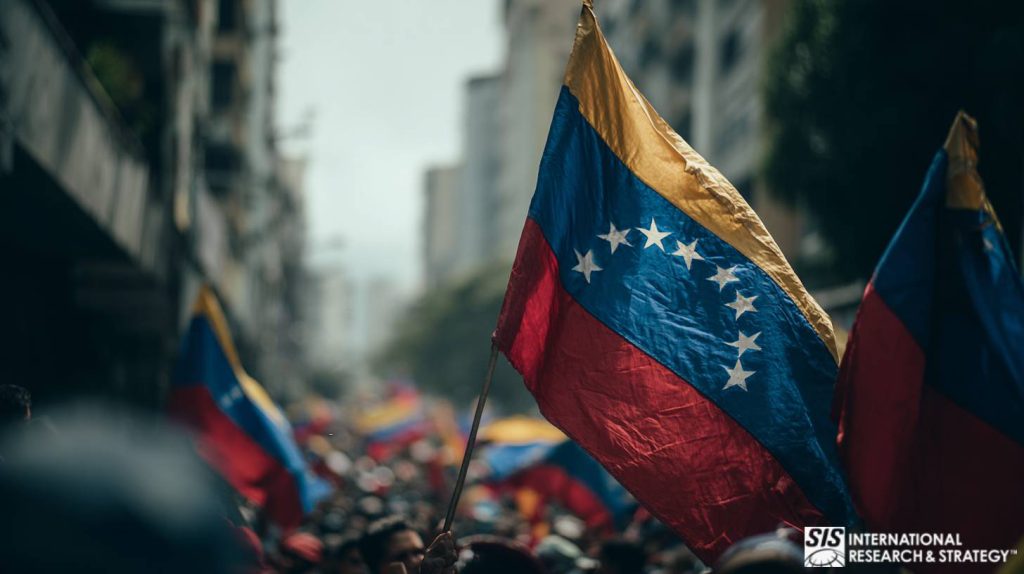
أدت الثورة البوليفارية إلى إعادة توزيع هائلة للثروة في 20 دولةذقرن أمريكا الجنوبية، مما أدى إلى تحول كامل لفنزويلا في السنوات الـ 16 الماضية. سمحت الطفرة النفطية لهوجو تشافيز بإنفاق مبالغ كبيرة من المال على البرامج الاجتماعية السخية. واليوم، فشلت معظم هذه البرامج. وعلى الرغم من هذه الحقيقة، يواصل الفقراء دعم حكومة تشافيز، مع شعورهم بأن الأمور ستكون أسوأ في ظل الحكم الذي يميل إلى اليمين. ويفضل الكثيرون تحمل الطوابير الطويلة والبضائع الرخيصة بدلاً من دعم المعارضة التي يشعرون أنها سترفع الأسعار إلى مستويات أعلى.
“Prior to its current domestic woes, Venezuela worked hard and often succeeded in establishing itself as a major alternative influence in Latin America, as a kind of “Bolivarian” power. Now, Venezuela must confront the fact that the conditions once anchoring its global aspirations – like excessive revenues generated by the petrostate – have evaporated. Venezuela’s capabilities for international power projection are constrained by domestic unrest, استنزاف الاحتياطيات الدولية, التضخم المتفشي، وانخفاض أسعار النفط، و تباطؤ إنتاج النفطمما يجعل احتمالات إطالة أمد المشروع البوليفاري الدولي قاتمة بشكل متزايد.12
في جوهر الأمر، نجح شافيز بمفرده في تحويل النفسية الفنزويلية. لقد مكّن الفقراء وأدخلهم في العملية السياسية. ربما لا يحظى مادورو بشعبية كبيرة، لكن نبض الثورة لا يزال ينبض في قلب العديد من الفنزويليين. لم ينسوا الأوقات الأفضل. ويطلق زعماء المعارضة وعوداً شعبوية في محاولة لجذب الناخبين التشافيزيين، إلا أن انعدام ثقة الشعب قوي. استندت جذور الثورة إلى إنهاء عدم المساواة الاقتصادية، لكن الفساد خنق هذه النية. وبالنسبة للمستثمرين الدوليين فإن استمرار المشاعر تجاه شافيز يعتبر بمثابة تهديد. وبالنسبة للآخرين، فهو حلم الأمل الذي يظل قائما، مهما كان مهمشا.
الحقوق المدنية وحقوق الإنسان والظروف المعيشية للفقراء …
In Venezuela today, there is growing discontent and repression. There are long lines with hundreds of people waiting for subsidized food and supplies. Among the ranks of the waiting there is hatred, aggression and fear. The people, while not starving, are surely struggling and crime is escalating to the point where the people no longer feel safe. The police who might protect the citizenry are corrupt. It is estimated that of all the homicides committed in Venezuela (and it has one of the highest murder rates in the world) only 3% of perpetrators are ever prosecuted. The country’s prisons are among the world’s worst according to the U.N. At the root of this crime-wave is social inequality and the great and widening gulf between the haves and the have-nots that dates back over 100 years.
حاولت اشتراكية هوغو تشافيز معالجة هذا التفاوت لكنها لم تنجح في نهاية المطاف. ويبدو أن حكومة مادورو فقدت قدرتها على الحفاظ على السياسات الشعبوية السابقة. ويتجلى اليأس الناتج عن ذلك في تزايد الجريمة، والتهريب، وتجارة السوق السوداء، وتضاؤل حافز الناس على العمل بسبب عدم جدواه في نهاية المطاف. Those who managed to escape poverty during Chavez’ glory years now find themselves slipping back into it. Segregation is evident and the pall of depression is palpable in the air. In addition, Venezuela is suffering from acute هجرة الأدمغةأو نزوح جماعي للمهنيين مثل الأطباء والمهندسين والمحامين وغيرهم من المهنيين الذين غادروا البلاد بحثًا عن مكان أقل تقلبًا لممارسة الأعمال التجارية.
يجد الباحثون عن المناصب والأشخاص الذين يصوتون لصالحهم أو ضدهم أن فنزويلا أصبحت مكانًا معاديًا للسياسة بشكل متزايد. ووفقاً لخوسيه ميغيل فيفانكو، مدير قسم الأمريكتين في هيومن رايتس ووتش، فإن "حكومة فنزويلا تستخدم نظام العدالة كواجهة، لكن الواقع هو أن القضاة والمدعين العامين الفنزويليين أصبحوا جنوداً مطيعين. لقد أساءت السلطات الفنزويلية بشكل روتيني استخدام سلطاتها للحد من حرية التعبير، مما أدى إلى تقويض النقاش الديمقراطي المفتوح الذي يعد حاسما بشكل خاص مع الانتخابات التشريعية المقبلة في ديسمبر/كانون الأول.5
Various political leaders have been jailed, driven from the country, or sued. Of course, jailing political prisoners on trumped-up charges is a classic totalitarian approach. Intimidation is also an effective method of repression, and it’s often done in such a way that the government can wash its hands of any implications of wrongdoing. Chavista thugs and motorcycle gangs have been known to terrorize journalists under the guise of being independent citizens. Even Twitter users on social media have been jailed for inflammatory comments concerning Maduro, instilling fear in not only journalists, but voters as well. Protests are met with harsh police crackdowns and the journalists who cover them routinely have their cameras confiscated or worse. It’s estimated that 70-80 press members are presently imprisoned in Venezuela. Even the mayor of Caracas is under house arrest.
القادة الناشئون والشخصيات السياسية الراسخة
ربما لم يكن هناك اعتقال سياسي في فنزويلا أكثر أهمية من اعتقال زعيم المعارضة، ليوبولدو لوبيز. ال نيويورك تايمز وذكر أن "التهم الموجهة إلى السيد لوبيز، وهو عمدة سابق لإحدى البلديات التي تشكل كاراكاس، تلقى تعليمه في جامعة هارفارد، كانت بذيئة. أمر السيد مادورو باعتقاله في فبراير/شباط 2014 واتهمه بإذكاء العنف مع انتشار المظاهرات ضد الحكومة. وزعمت الحكومة، في شكواها الجنائية، بشكل غير معقول أن السيد لوبيز حرض الفنزويليين على العنف من خلال رسائل مموهة.6 اليوم، لوبيز هو السجين الوحيد في المبنى الذي يُحتجز فيه، مع ستة أبواب مغلقة بين زنزانته المنفردة وحريته. وبطبيعة الحال، ما كان ليُسجن لو لم يعتبره مادورو تهديداً.
Overall, many feel there is a dearth of leadership in Venezuela. On the Chavista side, Chavez was able to nurture a cult of personality, but wherever this occurs, a charismatic tends to be surrounded by mediocrity. Case in point, نيكولاس مادورو. ومع افتقاره إلى شخصية تشافيز، فإنه لا يتمتع بشعبية سلفه بين الناس. لقد ورث الكأس المسمومة لأمة ذات نموذج اقتصادي مفلس. تخيل أنك تدير مكانًا يتجه فيه التضخم نحو 100% ويصطف الناس لساعات للحصول على حصص إعاشة هزيلة بموجب برنامج الهوية الذي تستغله العصابات ويتحول إلى توصيل طعام بطريقة بلطجية.
ديوسدادو كابيلو، رئيس الجمعية الوطنية، هو منفذ ماكر ولا يرحم، لكنه لا يحظى بدعم شعبي. سيكون قائدًا منطقيًا لأي مجلس عسكري أو استيلاء عسكري على السلطة. يعمل كابيلو على إثارة وتحفيز واستقطاب ولاء العناصر الأكثر راديكالية في المعارضة، لكنه لا يحظى بشعبية لدى أنصار التشافيزية بسبب سياساته الاقتصادية التحررية المتطرفة وخلفيته المتميزة.
مرشح المعارضة للرئاسة، هنريك كابريليس, is a major player with good support, but he may be seen among voters as a has-been. He has had chances in the past as an opposition leader to create change, so it is hard to imagine him creating much of a buzz. Chavista defector and Lara state Governor هنري فالكون هو معتدل ماهر في السير على الأرض الوسطى. لقد تمكن من البقاء بعيدًا عن الأنظار ويعتبر حصانًا أسود يجب مشاهدته.
وبحسب موقع فوكس نيوز، فإن "رفض مسؤولو الانتخابات الفنزويليون زعيمًا معارضًا بارزًا ماريا كورينا ماتشادومحاولته التسجيل كمرشح لانتخابات الكونجرس المقبلة. أعلنت ماتشادو يوم الاثنين (28.9.15) أن مجلس الانتخابات الوطني رفض محاولتها التسجيل للترشح في انتخابات 6 ديسمبر. ووصفت ماتشادو رفض ترشيحها بأنه انتهاك صارخ لحقوقها.7
الانتخابات المقبلة: التوقعات والنتائج المحتملة
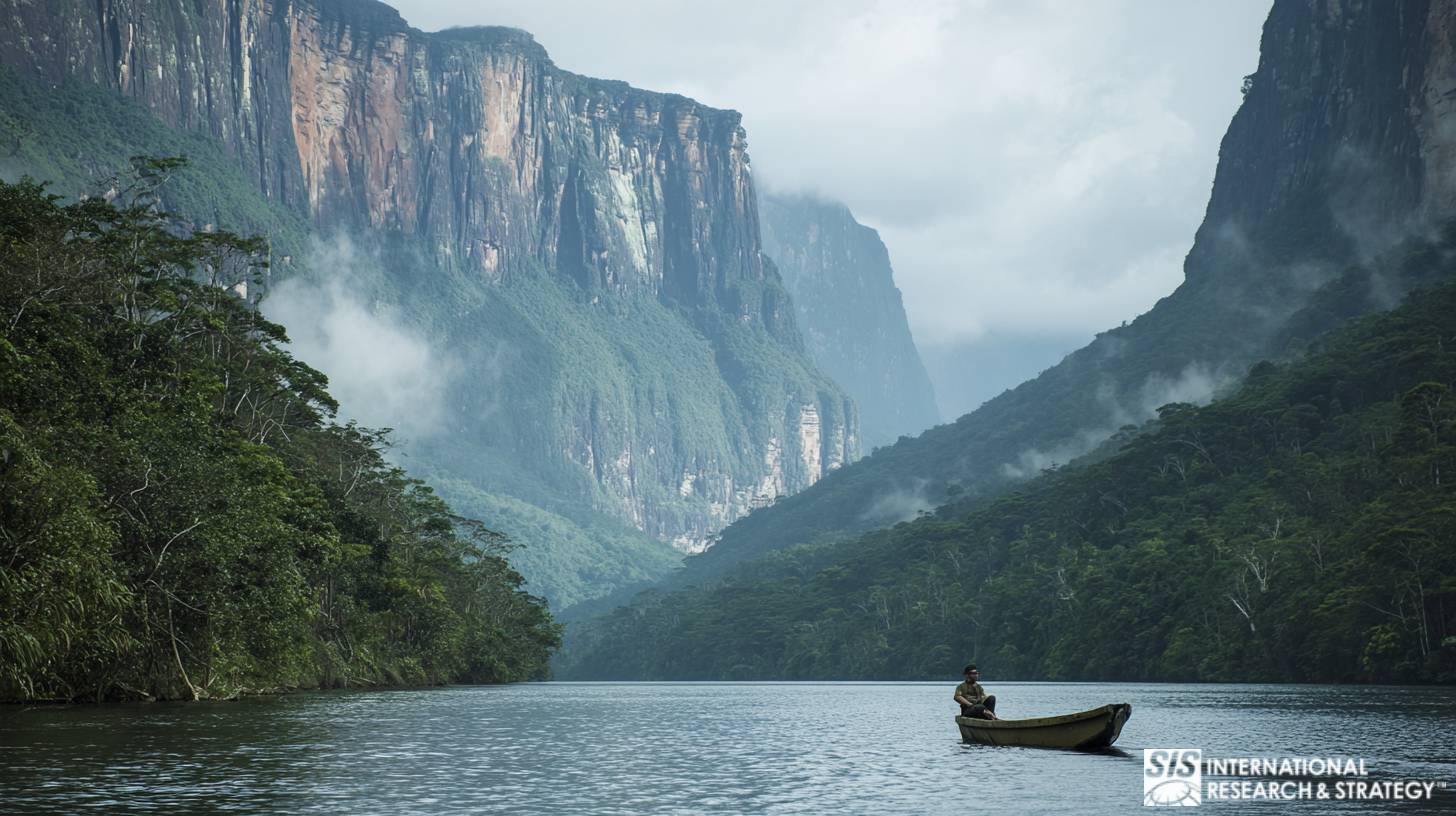
ينظر البعض إلى الانتخابات البرلمانية الفنزويلية في ديسمبر/كانون الأول 2015 على أنها الأمل الأخير للأشخاص ذوي الميول الديمقراطية للتعبير عن رغباتهم وتحسين بلادهم من خلال صناديق الاقتراع. بعد ذلك أصبحت منطقة مجهولة. ويعتقد معظمهم أن أداء المعارضة سيكون جيداً، وهو ما يعد خبراً كبيراً بعد سنوات عديدة من هيمنة شافيز على صناديق الاقتراع. ومع ذلك، فإن المعارضة ليست موحدة بشكل خاص، لذلك قد لا يكون هناك زعيم صوري واحد عندما ينقشع الدخان. وستتوقف قدرة الرئيس مادورو على الحكم على كيفية سير الانتخابات. وسيحاول ديوسدادو كابيلو، بصفته رئيس الجمعية الوطنية، استغلال أي زخم يمكن أن تحشده المعارضة. ومع توقع البعض فوزاً ساحقاً للمعارضة، هناك تساؤلات حول ما إذا كانت الحكومة ستفعل ذلك يسمح شيء من هذا القبيل أن يحدث. وكما ذكر، رموز المعارضة تم سجن ليوبولدو لوبيز وماريا كورينا ماتشادو و / أو منعهم من المشاركة في الانتخابات.
Another government advantage is near outright ownership of the media airwaves. The opposition candidates, once they declare, are immediately intimidated by the government and not allowed to have adequate airtime. For the most part they are denigrated, criticized, and are said to be fomenting violence and unrest. Of course, if the Chavistas lose, they won’t control all of the government anymore. In that event, they may attempt to enact laws that limit congressional power. Regardless of the outcome, “According to a leading Venezuelan polling organization, Datanálisis, 84 percent of the population believes that the country is on the wrong path and only 13 percent view Venezuela’s situation positively.”8
حرية الصحافة؟ جودة المعلومات؟
منذ Nicolás Maduro assumed power in Venezuela, journalistic opinion and information are allowed much less space in available publications. Local news outlets have been bought out by government supporters or have been driven out of business altogether, their resources often drained by ongoing court cases. In many instances they are refused permission to advertise or broadcast. Even worse, journalists are often jailed or fined by a wary government intent on neutralizing negative reports on its conduct and policies. Freedom of the press is not altogether forbidden as it is in North Korea, but those who do publish anti-government content are almost sure to not be publishing much longer.
للتحايل على الإجراءات التي تتخذها الحكومة لخنق حرية الصحافة، لجأ العديد من الصحفيين إلى الإنترنت، مستخدمين المدونات والنشر من خلال المنافذ الأجنبية. ومع ذلك، بدأ نظام مادورو في العمل ضد التعبير على وسائل التواصل الاجتماعي، حيث قام بسجن ستة أفراد بسبب تغريدات ألقت الضوء على الحكومة بشكل سلبي. وعلى الرغم من خطورة وعوائق نشر الرأي الحر، إلا أن الاستقلال والمقاومة ما زالا موجودين لدى قطاعات واسعة من الصحافة. وقد أدت الظروف الاقتصادية الصعبة إلى خروج العديد من الصحفيين من البلاد، تاركين المراسلين الأجانب في أعقابهم.
The government is unable to crack down on foreign journalists because of the repercussions it would have internationally. No new reporters are coming in, but those already there have been allowed to stay. Ultimately, the government aims to negate local press outlets and mute the foreign journalists with a war of attrition. Social media is a helpful alternative to traditional delivery mediums, but money, resources, and talent are necessary for the production of substantial, informative reporting.
مغادرة فنزويلا – تكلفة القومية
“In 2007, the Bolivarian government issued a law-decree nationalizing all remaining oil production sites under foreign control and mandating that all oil extraction in Venezuela be undertaken within the framework of joint ventures, in which the state oil company PDVSA retains the majority stake. This move sparked a wave of lawsuits by foreign trans-nationals in international arbitration bodies demanding compensation for expropriated assets. In response, Venezuela withdrew from the ICSID in 2012, citing institutional bias in favor of transnational corporations on the part of the Washington-based body. “13
Where once Venezuela was home to many large multi-national firms, today only a handful remain. It’s difficult to make a profit because labor costs and the prices of goods are predetermined.
وتصمد الشركات الكبرى، وتعتمد على أوقات اقتصادية أفضل في المستقبل، بينما لا تتمتع الشركات الصغيرة برفاهية الانتظار كل هذا الوقت. وتتحمل شركات النفط الكبرى هذه الخسارة مالياً، لكن احتمال تحقيق أرباح مستقبلية أكبر من أن نتجاهله.
لدى المركز الدولي لتسوية منازعات الاستثمار ICSID العديد من القضايا المعلقة التي تنطوي على ادعاءات بأن الحكومة الفنزويلية صادرت ملكية الشركات في سياق جهود التأميم. فازت شركة إكسون مؤخرًا بقضية $1.6B في عام 2014، ويقال إن البلاد مدينة بمليارات لشركات الطيران التي لم تدفع بعد. بشكل عام، أصبحت فنزويلا مكانًا صعبًا لممارسة التجارة مع المصالح النفطية الدولية والشركات الكبيرة بشكل عام. بالنسبة لأولئك الذين غادروا، فمن غير المرجح أن يعودوا حتى يتم تشكيل حكومة جديدة وأكثر تقبلاً.
أهمية فنزويلا للاقتصاد النفطي العالمي
لبعض الوقت، تألقت فنزويلا في عهد هوجو شافيز كمنارة للبلدان في مختلف أنحاء العالم التي كانت تتوق إلى الحصول على قدر أعظم من الاستقلال عن الولايات المتحدة، والسيطرة على مواردها الخاصة. He was seen as that rare individual with the courage to stand up to the U.S. in defiance, and as a central figurehead in a worldwide alliance of left-leaning, socialistic powers. After world oil prices plummeted, the bottom fell out of Chavez’s plans and his mystique was weakened. وفي أعقابه، ألقى خليفته نيكولاس مادورو خطابات نارية، لكن تأثيرها كان ضعيفا. برامج مثل بتروكاريبي, التي تزود فنزويلا ودول الكاريبي بالنفط، فقدت الدعم عندما توقف تدفق الأموال. واليوم، لم يتبق سوى عدد قليل من الدول التي يمكنها الدفاع عن فنزويلا على المسرح العالمي.
No doubt, Venezuela can still be a major provider of oil. They have the largest reserves in the world, but theirs is a viscous, hard-to-process type of petroleum product that is expensive to refine. With current prices at a nadir, Venezuela’s role as an oil producer has diminished, and its position as a lion of socialism has been undermined, as well. Globally, they are still a top ten producer of oil and they are important in that regard. Presently, there is a glut of oil on the global market, but this will not always be so. In the long-term, the world will need Venezuela’s vast reserves to supply an unquenchable need for petroleum.
وقد لخص جوليوس ووكر، الخبير الاستراتيجي في UBS، الأمر بهذه الطريقة. لا تزال فنزويلا مهمة لسوق النفط العالمية. وأي انقطاع في الإنتاج سيؤدي إلى ارتفاع كبير في الأسعار. ومن شبه المؤكد أن أي توقف في الإنتاج نتيجة للاضطرابات السياسية سيؤدي إلى ارتفاعات حادة في الأسعار، وسيؤدي النقص الإجمالي في الإنتاج إلى إجهاد أسواق النفط العالمية بشدة.9
هل النفط هو الحل الوحيد؟
وبعيداً عن النفط، تتمتع فنزويلا بموارد طبيعية وفيرة؛ خام الحديد والألومنيوم والذهب والماس والغاز الطبيعي. لقد تمت محاولة التنويع في الماضي، ولكن في نهاية المطاف، سيطر النفط على العشرينذ القرن وما بعده. حتى هذا الوقت، كان إنتاج النفط رخيصًا جدًا لدرجة أن ضرورة القيام بأي شيء آخر كانت عمليًا نقطة خلافية. ومع ذلك، لا تزال هناك إمكانات هائلة. ولنترك الأمر لفنزويلا الحالية لوضع العراقيل أمام التقدم، وعلى وجه التحديد قضايا رأس المال وحقوق الملكية التي تعيق جهود التنويع.
وقد لخص وزير الخزانة الفنزويلي خوليو سوسا رودريجيز الوضع بشكل جيد في مقابلة أجريت معه مؤخراً في كاراكاس عندما قال: "بالنسبة لجيلي، ستكون هذه هي المرة الأولى التي نرى فيها النفط ينخفض إلى ما دون نصف الميزانية الوطنية. وكان الشيء الأكثر حماقة في السنوات العشرين الماضية هو عدم تنويع الاقتصاد.10 قد يتطلب الأمر قدرًا كبيرًا من الاستثمار الأجنبي للاستثمار ومساعدة الاقتصاد الفنزويلي، إذا ومتى استقر هذا الاقتصاد. ستتوفر الفرص في العديد من القطاعات إذا سمح لها بأن تتحقق وأن تؤتي ثمارها.
Venezuela’s Relationship with Other Latin American Governments
The left-wing governments of Ecuador, Cuba, Argentina, and Bolivia have historically had alliances with Venezuela. These affiliations are based more upon ideology than on copying Venezuela as an economic model. Latin American ties were especially strong when Chavez ruled and money and oil were flowing. However, relationships have deteriorated noticeably under the Maduro regime.
Brazil pretends to have decent relations with Venezuela, but there is no real respect for Maduro that isn’t based on fear of his power and of losing access to Venezuela’s ready supply of oil. After all, Venezuela used to give money to their allies, but in light of its current economic woes, those days are gone. Some Caribbean nations such as Barbados rely on Venezuela for oil, so they are reticent to speak out against Maduro in any meaningful way.
While the embattled leader is struggling to hold together his frayed alliances, human rights groups are leaning hard on Latin American countries to hold the Venezuelan government accountable for its many transgressions against its political prisoners. Columbia has raised its voice to the issue, but it shares a border with Venezuela and isn’t too anxious to pick a fight. Cuba has long shared left-leaning proclivities with Venezuela, but their recent thawing of relations with the U.S. has placed Maduro in an awkward position given the vitriol and disdain he regularly aims at Washington and Obama.
ماذا عن روسيا والصين؟
If Venezuela is a strong ally of Russia and China, the relationship is mostly superficial. Venezuela has offered the two world powers a place to sell their products on preferential terms. The loans they have given are typically based on contractual obligations for the selling of Russian and Chinese products. When times were better, sales were good and everyone was happy, but today the business is winding down. Russia claims continued alliance, but they have trouble dealing with of their own. It is China that has continued to lend to Venezuela, even when getting paid back for these loans seems unlikely.
وفقًا لصحيفة الإيكونوميست، "أعلن الرئيس نيكولاس مادورو عن قرض جديد بقيمة $5 مليار من الصين في برنامجه التلفزيوني الأسبوعي، الذي تم بثه في الأول من سبتمبر. في العرض الذي استمر ساعتين ("في اتصال مع مادورو"، "En contacto con Maduro")، أعلن لفترة وجيزة عن توقيع الصفقة، قبل أن ينتقل إلى لقطات لجنود صينيين يسيرون ومقطع لنفسه وهو يعزف على الطبول مع كبار الشخصيات الصينية. . … وبما أن القرض سيتم سداده بالنفط، فلم يكن هناك حاجة للتصديق عليه من قبل البرلمان الفنزويلي (لأنه لن يتم اعتباره رسميًا دينًا)”.11
China’s place at the bargaining table is solid and they are not giving the money away for free. The strings are inevitably tied to the provision of a steady supply of oil in the future. Like Russia, China is dealing with its own economic turndown. Venezuela is located far away from China and the cost of refining the plentiful but viscous oil supply will be very expensive. The Chinese have made similar deals in Africa, leveraging present-day loans for long-term provisions of much-needed oil.
الحلفاء والمعارضون الدوليون
إن التحالفات والصداقات المتصورة بين فنزويلا ودول أخرى تعتمد دائمًا تقريبًا على النفط والمال والسياسات ذات الميول اليسارية. بالنسبة لإيران وروسيا وسوريا والصين، فإن أي ارتباط هو ذو طبيعة نقدية بحتة. الأيديولوجية ليست اعتبارا رئيسيا. علاوة على ذلك، يكاد يكون من المؤكد أن أي دولة ديمقراطية هي معارضة للحكومة الفنزويلية.
وكوبا حليف أيديولوجي طويل الأمد لفنزويلا. ومع ذلك، فإن الدفء الأخير في العلاقات مع الولايات المتحدة خلق مشاكل لحكومة مادورو. لقد وقفت فنزويلا وكوبا جنبا إلى جنب لسنوات عديدة، ضد شرور أمريكا. إن تحول كوبا 180 درجة لم يربك مادورو فحسب، بل إنه يشكك في شرعيته ذاتها.
Brazil’s friendship with Venezuela is of great importance to the Maduro government as Brazil is in good economic shape. Elsewhere, Algeria, Palestine, and the Assad regime in Syria have shown an alliance to the Venezuelan government. Some believe that Maduro’s regime has been somehow complicit in helping Iran to conceal its ongoing nuclear development program.
أما بالنسبة للأعداء فلا شك أن الولايات المتحدة هي رقم واحد. وقد ادعى مادورو بإصرار أن الولايات المتحدة كانت تحاول اغتياله، حتى أنه ورط نائب الرئيس جو بايدن في تلك التأكيدات. ويحاول الرئيس أوباما، الذي يبذل قصارى جهده لعدم تزويد فنزويلا بأسباب لتصنيف الولايات المتحدة على أنها إمبريالية، تحسين العلاقات مع نظام مادورو. وعلى جبهات أخرى، يمكن النظر إلى إسبانيا باعتبارها معارضة إيديولوجية لفنزويلا، ومن المؤكد أن كولومبيا أثارت غضب مادورو.
حوار جديد مع الولايات المتحدة؟
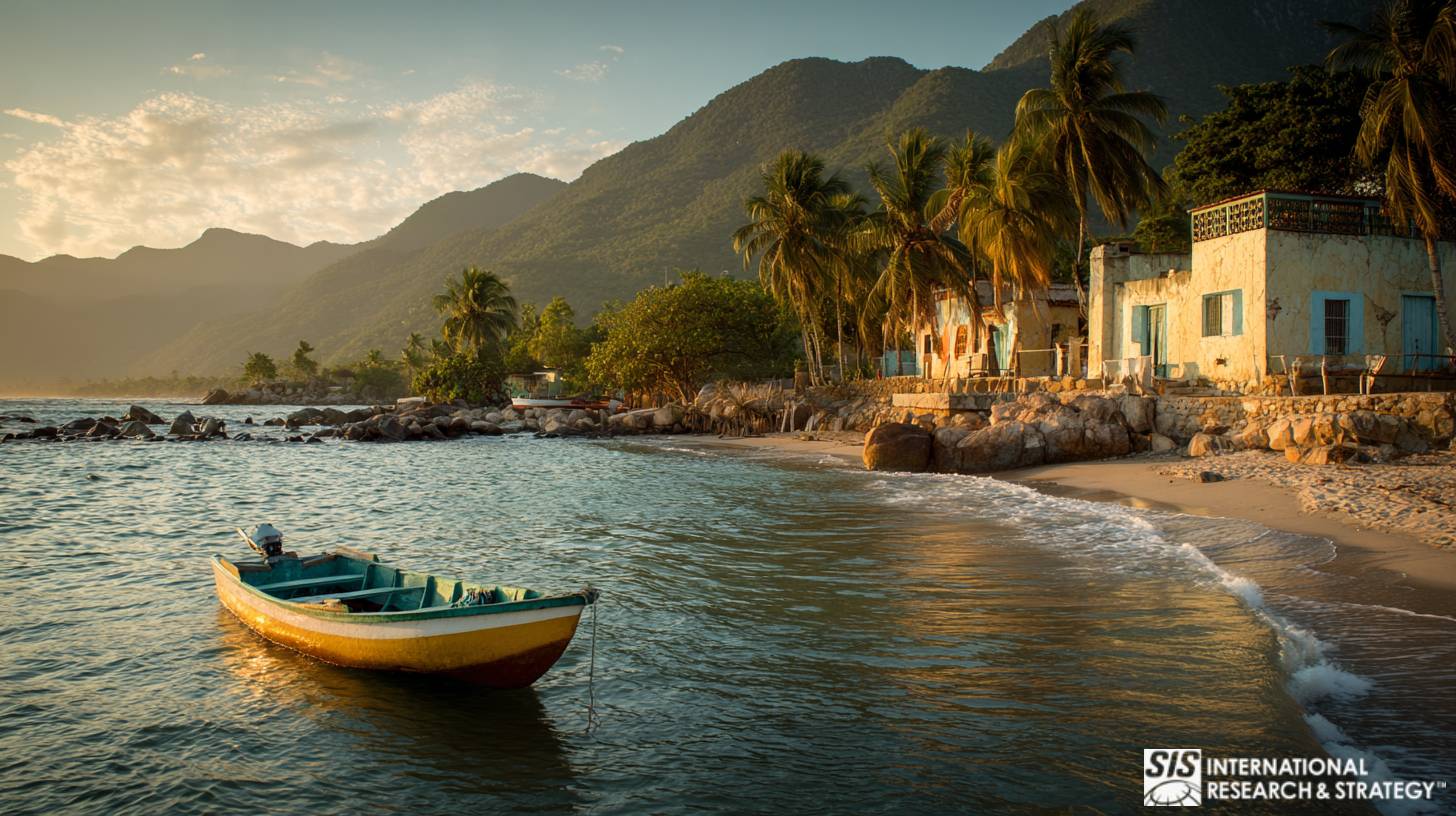
بالنسبة لنيكولاس مادورو، فإن أي مفاوضات مع حكومة الولايات المتحدة هي اقتراح محفوف بالمخاطر في أحسن الأحوال. ففي نهاية المطاف، أمضى هو وسلفه الراحل هوجو شافيز سنوات عديدة في تشويه سمعة جارتهم الملعونة في الشمال وبث سمومها المناهضة للرأسمالية. ومع ذلك، فإن المحادثات الأخيرة بين البلدين كانت مستمرة بالفعل. كما أوردت وكالة رويترز للأنباء مؤخراً..
"الولايات المتحدة و فنزويلا شرعوا في حوارهم الأكثر شمولاً منذ سنوات في محاولة لتحسين علاقاتهم المتوترة، وفقًا لمسؤول كبير في الإدارة الأمريكية. وتمثل الدبلوماسية الهادئة، التي لم يتم الكشف عن نطاقها من قبل، إشارة إلى أن الانفراج الأمريكي مع كوبا الشيوعية ربما يساعد في إعادة تشكيل علاقة مضطربة أخرى في أمريكا اللاتينية. وحذر المسؤول، الذي لديه معرفة مباشرة بالمحادثات رفيعة المستوى، من أن العملية في مرحلة مبكرة. وتأتي الجهود التي تبذلها حكومة أمريكا اللاتينية الأكثر حماسة لواشنطن ومورد النفط الرئيسي للولايات المتحدة لتحسين العلاقات في الوقت الذي يعاني فيه الرئيس نيكولاس مادورو من اقتصاد متدهور تقوده الدولة والذي أصبح أكثر عزلة بسبب العلاقات الدافئة مع الولايات المتحدة، حليف كوبا الوثيق.14
For the U.S, having a failed state in Venezuela is not a good thing. It creates increased security issues and opens the door to escalation in drug trafficking activities. The DEA has been investigating high-ranking Venezuelan officials for believed involvement in drug-related criminality. To mollify the U.S., some arrests have been made in relation to the investigations. One possible scenario sees the U.S. providing financial aid to Venezuela, though some doubt this will happen. In the pursuit of U.S. dollars, it’s reported that the Venezuelan Head of the Assemblage, Diosdado Cabello recently met in Haiti with U.S. Assistant Secretary of State Shannon. In the meantime, Maduro continues to vent on TV against the U.S., blaming it for most of Venezuela’s ills.
هل الكارثة قادمة؟
Despite loans from China to keep it economically solvent and ongoing relations with the U.S. portending possible relief for Venezuelans, day-to-day life is still miserable for millions. Long lines of poor people stand in line for food and supplies. Constant shortages provide unending aggravation. Crime threatens the very lives of a vulnerable population. Many say that short of a quick and demonstrative intervention of some type, Venezuela may soon be heading off the cliff. This makes the coming elections even more important. With external debts mounting and oil prices remaining low month after month, conditions are perfect for a cataclysm of the highest order.
ووفقا لباركليز، فإن فنزويلا تعاني من أعمق أزمة اقتصادية في تاريخها، حيث من المتوقع أن ينكمش الإنتاج بنسبة 9.1% هذا العام. ومن المرجح أن يصل الانكماش الاقتصادي إلى 16.5% بين عامي 2014 و2016، في حين سيتجاوز التضخم خلال تلك الفترة 1000%.15
The middle-class continues to protest, but unless they are joined by the poor, creating numbers too big to be ignored, little will change. True, petrol bombs, thrown stones, unrest, and violence can lead to an awareness that might affect real change, but without organization and leadership, such protests stand little chance of uniting huge amounts of people and of being effective. With Venezuelan citizens so hungry and angry, it’s not hard to see why Chavez-worship is on the wane. An epochal event might be necessary to usher in a new era for the nation and to reinvigorate its beleaguered markets.
على المدى الطويل…
Most experts agree that things will get worse in Venezuela before they get better. Even if oil prices rise, the best that might be expected is a few more years of “kicking the can down the road.” The country’s debts are astronomical. There isn’t enough food. Problems are myriad to the point that it may take decades for Venezuela to sift through the wreckage wrought by Chavez’s experiment, and by the fickle
طبيعة أسواق الوقود الأحفوري. ويبقى أن نرى ما إذا كان السقوط المتوقع للتشافيزية سوف يتم حله بسرعة، أو ما إذا كان سوف يكون هناك صراع طويل ومؤلم للخروج من الظلام. وأياً كان القرار، فلابد أن يتضمن تفويضاً من الشعب، وليس إرادة القلة القديمة.
Will a moderate such as Capriles provide the bridge to unite right and left in Venezuela? Can Chinese loans stave off default? China may well be tiring of waiting for its return on investment to pay dividends. On the upside, Venezuela is sitting on a sea of oil, and there is no doubt that eventually, the world will need it. Oil prices are bound to rise and when that happens, Venezuela will be well-positioned to reap the benefits. Investors, meanwhile, are in a wait-and-see mode.
من LFPress.com؛ "سيستمر الاقتصاد في المعاناة، ولا توجد إرادة سياسية لدى الحكومة لاتخاذ إجراءات قوية لمعالجة التضخم المتزايد بسرعة وتدهور البيئة المالية. والواقع أن الاستياء الشعبي السائد الآن يجعل مادورو أقل ميلاً إلى تنفيذ إصلاحات مؤلمة قد تؤدي إلى احتجاجات متجددة. وهذا يعني أننا سنشهد جولات أخرى من السخط الاجتماعي في المستقبل”.16
أي طريق إلى الأمام؟
As improbable as it sounds, many feel the best course of action for Venezuela to take regarding its future would be to form a transitional government with representation from all sides, in the interest of national solidarity. This would include the opposition, the Chavista government, and the military. Some feel that painful austerity measures presented by a unified front are needed in order to stabilize the economy. The IMF could provide emergency funding. The people will decide who they want to lead through fair elections monitored by the international community. The ultimate goal would be to achieve some type of peaceful democratic transition.
وتشمل العلاجات الأخرى التي تم اقتراحها خفض قيمة سعر الصرف الحالي لتحفيز الشركات على العودة إلى فنزويلا. من منظور صناعة النفط والاستثمار الدولي، ستكون سيطرة المعارضة بمثابة تحسن، حيث يوجد عدم ثقة كبير في مادورو وسياساته. في الوقت الحاضر، سيكون من الصعب على حكومة مادورو إصلاح العلاقات، على الرغم من التدهور الذي أصبح عليه الاقتصاد. هذا يقال، وعلى الرغم من إخفاقاتها، لا يزال الكثيرون يدعمون التشافيزية ويعلقون آمالاً على إحياء الثورة.
Maduro still has four years left to rule, but it’s hard to imagine him surviving that long as badly as things have been. Should the urban poor mobilize and show their extreme discontent in the streets, Maduro’s tenure could be shortened. In an interesting article in the Huffington Post recently, this assessment was published …
"الحل القابل للتطبيق هو العثور على زعيم جديد، زعيم يحتمل أن ينحدر من الأحياء الفقيرة في بيتاري، أو سان أجوستين، أو 23 دي إنيرو؛ من هو قادر على مناشدة العديد من غير الراضين تشافيز الذين لا يثقون بقادة المعارضة الحاليين. ومن المحتمل أن يمثل ظهور مثل هذا الرقم أرضية مشتركة بين البلدين تشافيز والمعارضة ويمكن أن يشير بشكل جيد للغاية إلى نقطة التحول في الأزمة السياسية في فنزويلا.17
ما الذي يريده الفنزويليون حقاً؟
Most experts feel that the wants of the Venezuelan people are actually not so complex or impossible to satisfy. Like everyone, they wish for the basics; food, shelter, and clothing. They want to be able to eat and have a minimal amount of purchasing power. As one insider put it, “they want a peaceful nation with plenty to eat, drink, decent beaches, and they will be happy.” Venezuelans also want to be heard, to have a voice, a vote, and honest representation. In addition, they insist on a decent education for their children.
وفي واقع الأمر، فإن الطبقة الوسطى تسحب حصصها وتغادر في غياب فرص الازدهار. إن الفقراء لديهم أمل ضئيل للغاية في أن يأتي أي تخفيف من البؤس الحالي. من المؤسف أن فنزويلا دولة مستقطبة. تختلف رغبات ورغبات أولئك الذين يدعمون المعارضة والتشافيز بشكل كبير. ويريد كثيرون بكل شغف رؤية زوال سياسات التشافيزية، بينما يريد الفقراء والمحرومون استمرار الإنفاق الاجتماعي والسياسات ذات الميول اليسارية.
وبالإضافة إلى ذلك، يريد الناس أن يشعروا بالأمان في الشوارع وفي منازلهم. إنهم خائفون لأن جرائم العنف استمرت في التصاعد. كثير من الناس يعانون من الجوع أيضًا، وقد سئموا من الانتظار في الطابور للحصول على الطعام والإمدادات. غضبهم يتزايد. إنه فتيل مشتعل يقترب أكثر فأكثر من انفجار ذي أبعاد كارثية. الشكل الذي قد يتخذه هذا غير واضح. ويبقى أن نرى ما إذا كان من الممكن نزع فتيل هذا الانفجار بسرعة، قبل فوات الأوان. ويبدو المستقبل مفعما بالأمل بالنسبة لفنزويلا وشعبها. انها حاضر وهذا أمر متقلب للغاية وإشكالي.
موقع منشأتنا في نيويورك
11 إي شارع 22، الطابق 2، نيويورك، نيويورك 10010 هاتف: 1(212) 505-6805+
حول سيس الدولية
سيس الدولية يقدم البحوث الكمية والنوعية والاستراتيجية. نحن نقدم البيانات والأدوات والاستراتيجيات والتقارير والرؤى لاتخاذ القرار. نقوم أيضًا بإجراء المقابلات والدراسات الاستقصائية ومجموعات التركيز وغيرها من أساليب وأساليب أبحاث السوق. اتصل بنا لمشروع أبحاث السوق القادم.

